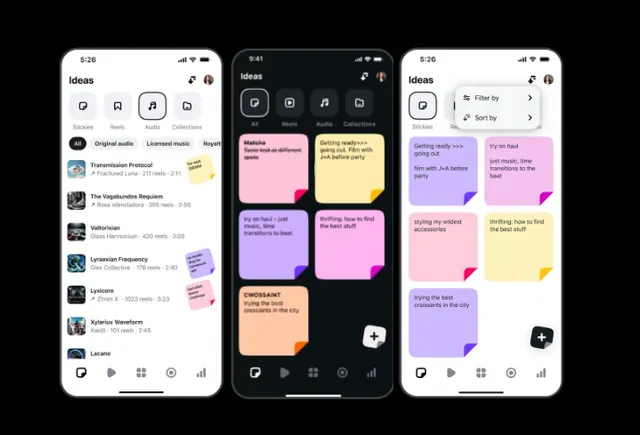When Forgiveness Feels Impossible, Here's How To Move Forward
Forgiveness is just as much a gift to yourself as it is to them.


August 12, 2022 — 9:10 AM
It can be incredibly difficult to feel betrayed, hurt, or otherwise wronged by someone, and especially someone you love. Perhaps even harder? Forgiving them.
But forgiveness is just as much a gift to yourself as it is to them, so we asked experts how to forgive someone even when it's hard.
What does it really mean to forgive someone?
Forgiveness is essentially a letting go—of anger, resentment, or whatever it is you feel toward someone who you feel has wronged you. As psychologist Kristina Hallett, Ph.D., previously explained to mbg, "Merriam-Webster defines forgiveness as 'to cease to feel resentment against an offender' or 'to give up resentment of or claim to requital.' It's an internal state of being, and it's not dependent on anyone but you."
She adds that your ability to forgive someone often has little to do with that person or what they did, and everything to do with whether you can make that shift in your thoughts, feelings, and actions towards the person. And just because you forgive someone doesn't mean you're condoning the behavior, or even that you're going to welcome this person back into your life—it just means you've made peace with what happened.
According to licensed marriage and family therapist Rachel Zar, LMFT, CST, it's important to remember that it's only natural to be averse to forgiving: "It's a protective thing that we do, it's fight or flight, and it's human instinct to want to strike back or punish when we feel like we've been deeply wronged, and hold on to that weapon we can build in future fights. But there does come a point where you can ask yourself, Is this actually serving me?"
To that end, she notes that we tend to conceptualize forgiveness as something we're giving to someone else, when we should really think about it as something we do for ourselves. "It does start to feel like drinking the poison and hoping that somebody else will die," she explains—which brings us to our next point.
To understand the benefits of forgiveness, you have to understand what happens when you don't forgive. As Zar explains, "Holding on to a grudge, holding resentment—it's not good for us. It causes a lot of stress and anxiety, lower mood, and of course, relationship stress."
Hallett describes not forgiving someone as a mixture of anger, depression, and blame. But most of all, she says, "the opposite of forgiveness is stagnation—it's getting mired in an emotional place regarding a particular incident, and it prohibits future growth and discovery."
When we forgive, on the other hand, we're able to let go all of the energy we're spending by not forgiving. "What forgiveness looks like is actually letting go, and not giving energy to a situation in which you have a very strong reaction to, or an individual that you have a strong reaction to, or relationship with an individual that you have a strong reaction to," psychotherapist Annette Nuñez, Ph.D., LMFT, tells mbg.
1. Understand why forgiveness is important.
Before you even begin to think about the particular situation you're facing, take a step back and reflect on your why. Why do you want to forgive, in general? As Nuñez explains, "I always ask my clients, What purpose does holding resentment or anger or sadness towards a situation serve?"
Reflect on that question, and some of the previous points mentioned above, and recognize the value in releasing emotional baggage and forgiving people when you've been wronged.
2. Assess who/what needs to be forgiven.
From this place of understanding, begin to think about the situation and person in question. Zar explains this is when you'll begin to start deciding whether you even can forgive them.
"Has that person done enough, or meant enough to you, that you want to see them as more than the thing they've done to you? Have they actually atoned? Apologized? Earned your trust back if that's what's needed? Have they clarified that their intention wasn't to hurt you? Do you believe them? That's really important," she tells mbg.
She adds that a big aspect of forgiveness is safety, as well, so you can also assess whether you feel safe (emotionally and physically) around this person. When you can begin separating what the action was from who the person is, she says, you've begun to ease into forgiveness.
3. Do some inner work around the issue.
Nuñez says forgiveness also requires a degree of inner work, and namely, looking at how holding onto resentment is impacting you, and why you're doing it. As aforementioned, it can be instinctual to not want to forgive, but are you holding onto anger out of fear? Or a grudge? And how is that energy festering in your life?
Part of this step ties back to no.1, and recognizing that forgiveness is a gift to yourself. Take your understanding of the value of forgiveness, and apply it to the situation at hand.
4. Choose to release and forgive.
Once you've muddled through all the messy inner work and reflected on the situation, you can choose to release and forgive. And it is, ultimately, a choice. Zar and Nuñez both note that this step can involve a literal declaration of forgiveness, in which you tell the person you forgive them, but it can also be an internal process that you never actually speak about.
"You don't necessarily have to say, 'I forgive you.' You could write it on a piece of paper and let it go. That is just as important as actually telling an individual that you forgive them—it's very symbolic," Nuñez says.
Or, if you do want to verbalize your forgiveness, Zar says you can tell the person you are making the choice to let it go (whatever it is), and you understand that their action wasn't representative of who they are. "It's important to recognize that forgiveness isn't the same as letting your dog off the hook or saying what they did was okay, right? You can forgive someone and at the same time say, 'It's not okay, and you hurt me, and that's not acceptable behavior—and I'm choosing to forgive you. I'm choosing for me to move forward,'" she adds.
5. Be prepared for setbacks.
Thought we were done? Not quite. Zar says to anticipate some setbacks along the path of forgiveness, explaining that it's entirely possible for the issue in question to trigger you in the future.
"Forgiveness doesn't always happen in a linear fashion, and that's important to recognize," she explains. "Sometimes we think we let something go and then something triggers it and it comes back up, and that can be a normal part of the process."
In this case, notice when you are triggered, and come back to all of these points, remembering your "why," and further, why you chose to forgive this person initially.
When forgiveness may not be an option + what to do instead.
Sometimes, the hurt is too deep, and we cannot bring ourselves to forgive—or at least not yet. Regardless of what happened, in cases like this, Nuñez notes that it would be a good idea to seek the guidance of professional to help you work through the negative emotions you're holding on to.
And even if you can't necessarily "forgive" this person (or people, or situation), it's still important to find a degree of acceptance, so you're not harboring negativity unconsciously. "What takeaway did you get from this, even if you're unable to forgive somebody? How can we grow? How can we better ourselves from it?" she suggests asking yourself.
Whenever somebody feels they've been really wronged and forgiveness isn't an option, she adds, it's also important to assess how this is showing up in your life, and whether it's eating away at you. "And if you find it's more negative and nagging, than positive, then really seek a therapist to help you figure it out, because there may be some deeper issue as to why it's eating away at you," Nuñez explains.
When you've reached a place of forgiveness (or even reluctant acceptance), there are still steps to be taken moving forward. And according to Zar, setting firm boundaries is the main one.
Ask yourself what boundaries you need in place, and what you need to help yourself move on, she says. If a friend has betrayed your trust, for example, the boundary is that you need more transparency from them. And while you can't necessarily count on the person in question to honor your boundary, you can count on yourself to hold it.
"In the meantime," she adds, "you might need some some time apart, maybe saying, 'I'm not going to be coming to social gatherings for a few weeks because I'm working through this myself,' for example. Or it could also mean fundamentally changing the nature of the relationship."
Zar tells mbg that depending on the situation, your course of action is going to look different. You may feel it's best to cut the person off entirely, see them less, or only see them in group settings. It's up to you to decide what's best for you given the situation.
"And you can forgive someone and do that at the same time. Forgiveness doesn't mean acting like nothing ever happened, but it really is about what can you do to get to a place of emotional and physical safety—and then once you're there, it becomes a lot easier to either accept a change in the relationship dynamic, or accept that the person in the relationship is bigger or more important to you than what happened," she says.
The bottom line is, forgiveness doesn't always come easy, but it is so worth it. As they say, anything that costs you your peace is too expensive, and by holding on to anger or resentment, we're only spending our own peace—not theirs.
Reset Your Gut
Sign up for our FREE doctor-approved gut health guide featuring shopping lists, recipes, and tips
You are now subscribed
Be on the lookout for a welcome email in your inbox!
https://www.mindbodygreen.com/articles/how-to-forgive-someone

 Koichiko
Koichiko 
































